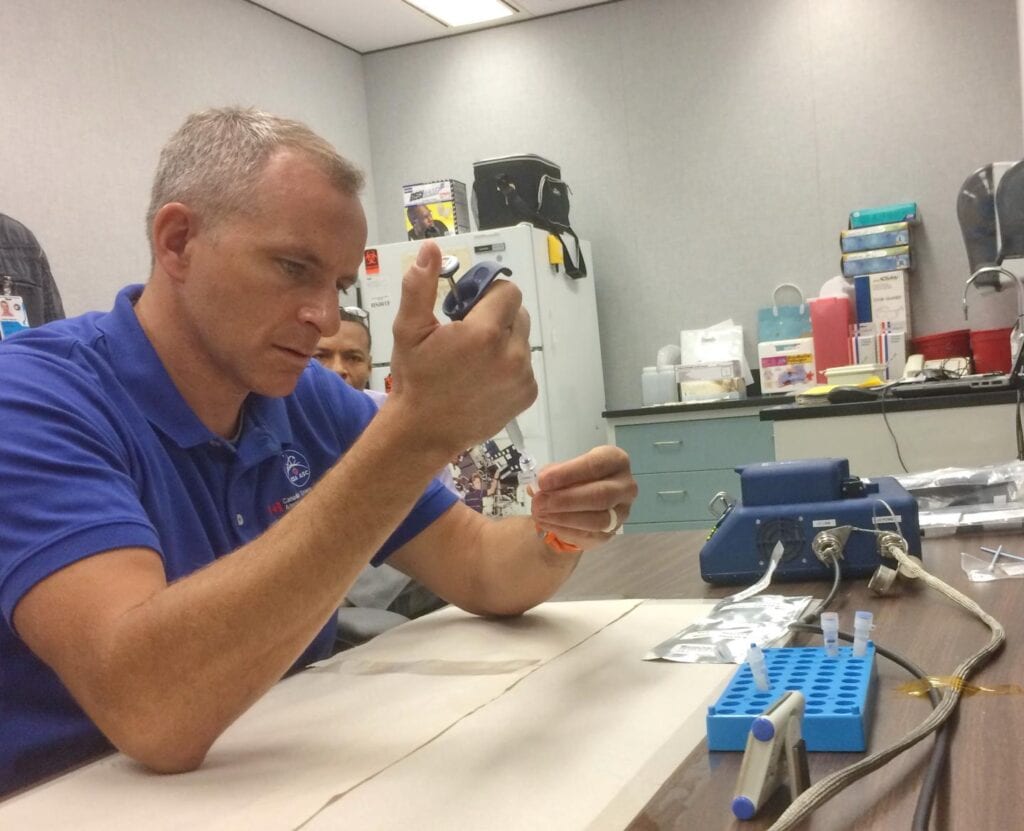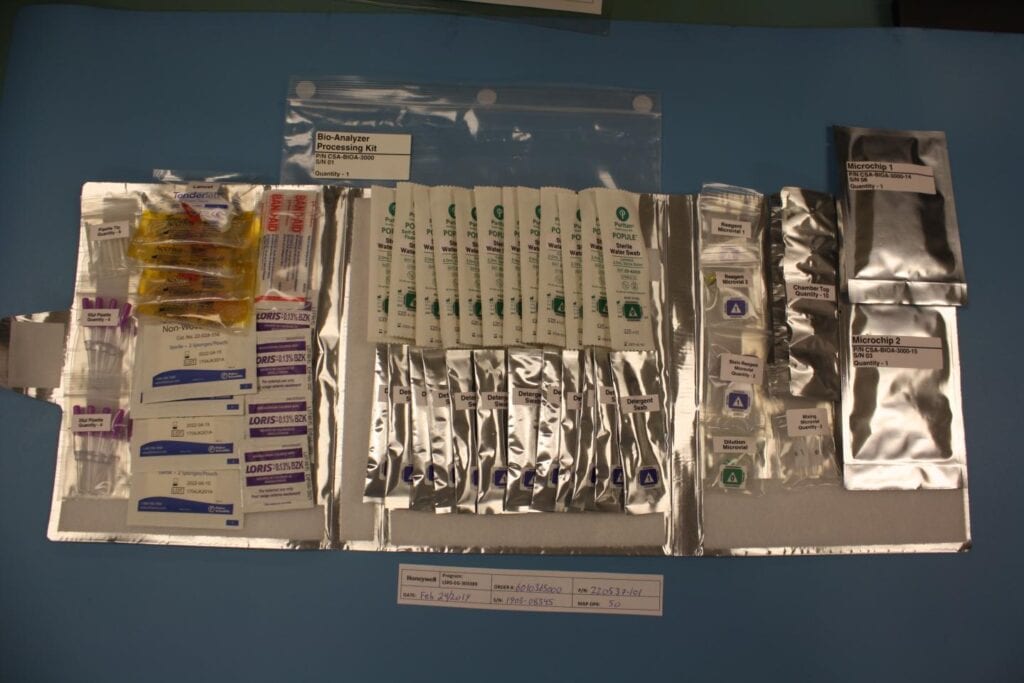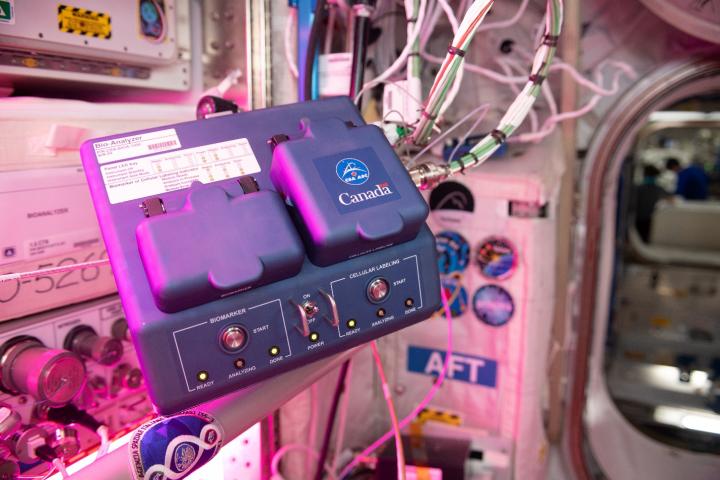The equipment available for cellular and molecular biology in space is limited compared to capabilities found in laboratories on Earth. To address this limitation, the Canadian Space Agency (CSA) commissioned an innovative biomedical device for an upcoming space station expedition.
The compact Bio-Analyzer enables near real time, onboard analysis using freshly collected biological samples such as blood, urine, saliva, sweat, and cell cultures. The device is capable of counting cells and detecting and quantifying biomarkers.

The blood collection method, a finger prick to obtain less than 1 milliliter of blood per sample, is less complex and time-consuming than current space station collection methods, consisting of blood draws into tubes, as in Earth-based clinics. Additionally, sample preparation is semi-automated, requiring less crew time.
The Bio-Analyzer also provides automated data transfer to the ground, making the data available much sooner than when the samples must be frozen and returned to the ground, as is currently the case.

Biomarker detection takes approximately three hours, followed by electronic analysis of the sample with immediate availability of results. Cell counting takes approximately four minutes, and this data becomes immediately available as well. Delivery of analysis results shortly after the sample is loaded provides the opportunity for near real time medical diagnostics.
The ability to rapidly collect and analyze cells will reduce the requirement for sample return. We can avoid the steps of collecting samples in tubes, keeping them in cold stowage, delivering them on a returning vehicle, and then analyzing them on the ground. This rapid analysis will accelerate scientific data collection.
Principal Investigator Luchino Cohen
This new diagnostic tool could help test the efficacy of specific countermeasures that are key to current and future exploration missions to the Moon, Mars and beyond. For example, to test the effectiveness of countermeasures used for reducing bone loss, it should be possible to perform regular tests on crewmember blood to quantify biomarkers of blood degradation, an indicator of bone health.
The Bio-Analyzer can provide Earth-based benefits as well, such as improving point-of-care diagnostics. “This has great potential for continuous monitoring of patients here on the ground,” said Cohen. “Patients won’t need to go to the clinic or wait days for blood analysis results. That’s the future of medical diagnostics on Earth,” he added.

Credit: NASA
Once the Bio-Analyzer system is fully functional on the space station and has successfully demonstrated its capabilities in microgravity, scientists plan to use it for future space station research, such as in the CSA-sponsored Immuno Profile project. Immuno Profile will be the first study to monitor astronauts’ immune systems for the entire duration of their missions aboard the International Space Station (ISS). It will explore changes in immune hormones and white blood cells, the first line of defence against pathogens like bacteria and viruses.
For each investigation, companies tune specific tests to satisfy the requirements of each investigator. The CSA currently plans six years of Bio-Analyzer space station utilization.


